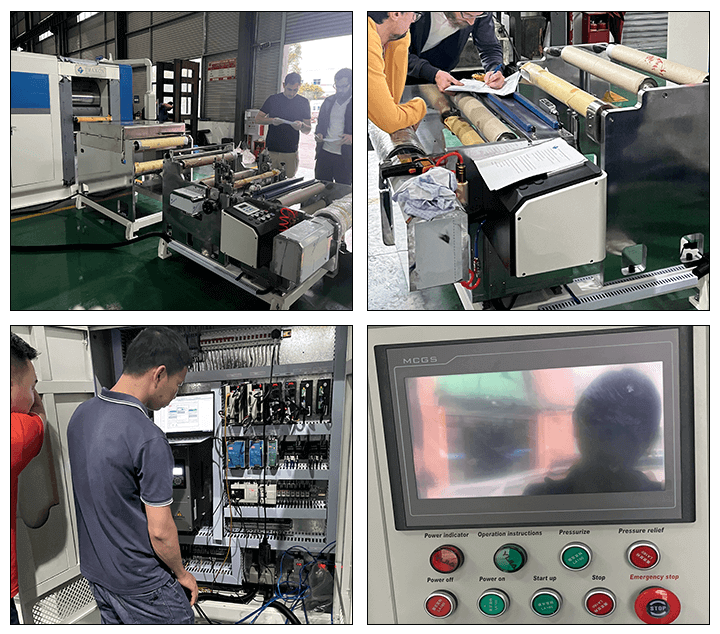Site Blog
contact us
- If you have questions, please contact us, all questions will be answered
- Email : David@tmaxcn.com
- Email : Davidtmaxcn@gmail.com
- Add : No. 39, Xinchang Road, Xinyang, Haicang Dist., Xiamen, Fujian, China (Mainland)
hot products
A calendering machine for electrode plays a crucial role in the manufacturing process of batteries, specifically in the preparation and optimization of electrode materials. Here's an overview of its significance and functionalities:
Key Functions:
Material Compression: The primary function of a calendering machine for electrodes is to subject electrode materials to controlled compression. This mechanical process involves passing the materials through rollers to compress and shape them, enhancing their density and uniformity.
Uniformity Enhancement: Through the electrode Calendering Machine the machine promotes a more uniform distribution of electrode materials. This uniformity is critical for ensuring consistent electrochemical performance across the surface of the electrodes.
Surface Smoothing: Calendering contributes to smoothing the surface of electrode materials, reducing irregularities and improving the contact between layers. This improved contact enhances electron and ion flow within the battery, leading to better overall efficiency.
Density Optimization: The machine aids in optimizing the density of electrode materials. By reducing voids and increasing packing density, the calendering process improves the overall performance parameters of batteries, including energy density and cycle life.
Applications:
Lithium-Ion Battery Manufacturing: Calendering machines are extensively used in the production of lithium-ion batteries. The precise compression and shaping of electrode materials contribute to enhanced performance, making them suitable for applications in electric vehicles, portable electronics, and energy storage systems.
Nickel-Metal Hydride Battery Production: Beyond lithium-ion batteries, these machines are applicable to the manufacturing of other battery types, such as nickel-metal hydride batteries. The calendering process improves material uniformity, enhancing the overall performance and lifespan of these batteries.
Supercapacitor Manufacturing: Calendering machines find application in the production of supercapacitors. The controlled compression of electrode materials contributes to improved energy density and charge-discharge efficiency in supercapacitors.
Emerging Battery Technologies: As new battery technologies, such as sodium-ion batteries, continue to emerge, calendering machines are adapting to support the manufacturing processes of these innovative energy storage solutions.
Benefits:
Enhanced Electrode Performance: The calendering process leads to enhanced electrode performance by improving material characteristics, resulting in batteries with better energy storage capabilities and prolonged lifespan.
Consistency in Production: Calendering machines contribute to the consistency of electrode production, ensuring that each battery cell performs similarly. This is crucial for the reliability and predictability of battery packs.
Optimized Manufacturing Processes: These machines play a pivotal role in optimizing the manufacturing processes of various types of batteries, supporting advancements in battery technology.
In summary, a calendering machine for electrodes is a critical component in the production of high-performance batteries, contributing to uniformity, density optimization, and the overall improvement of electrode materials. Its applications span across different battery technologies, making it an integral part of the evolving energy storage landscape.

 English▼
English▼




 +86 13174506016
+86 13174506016 David@tmaxcn.com
David@tmaxcn.com

